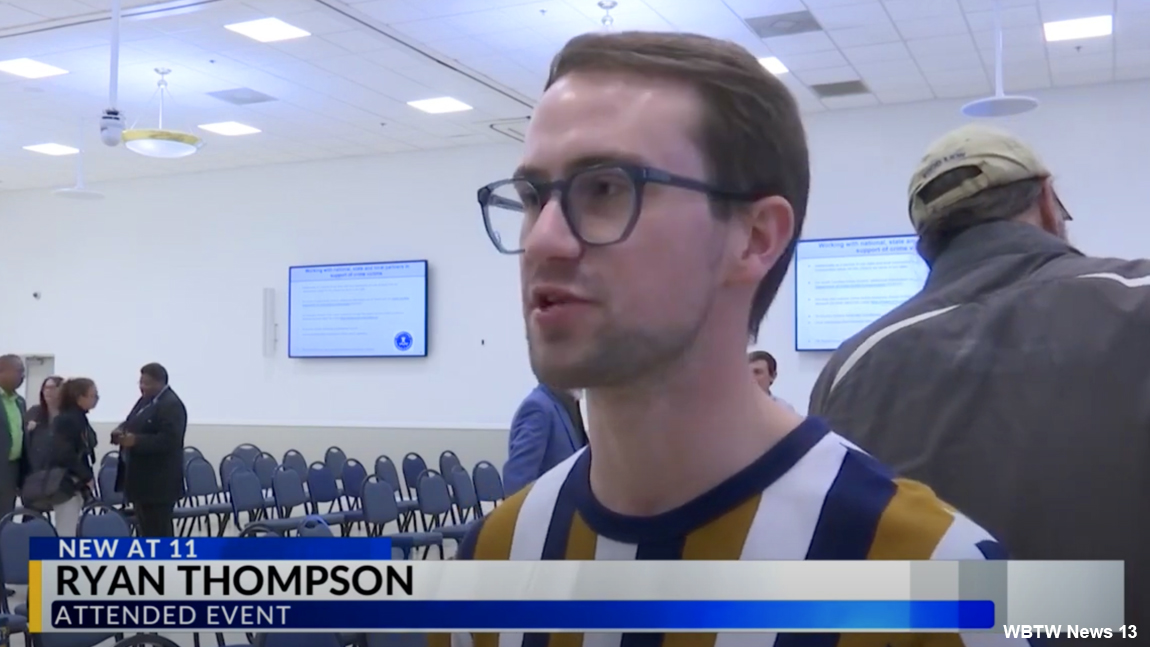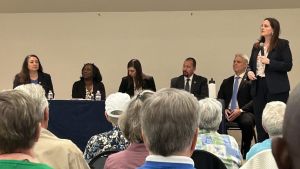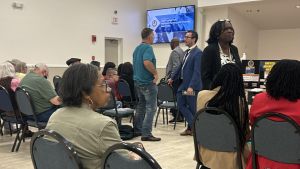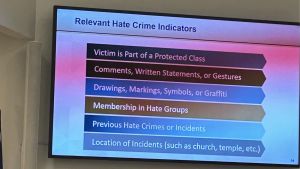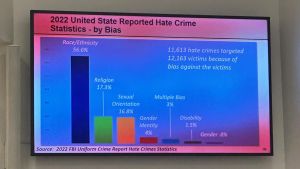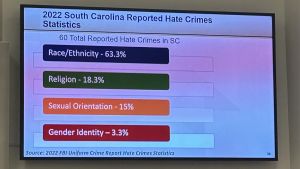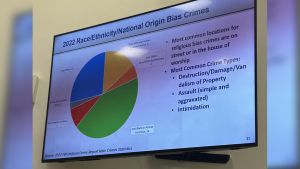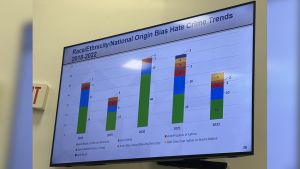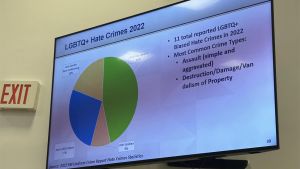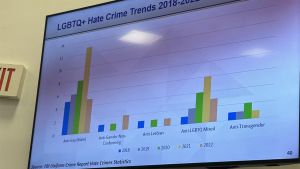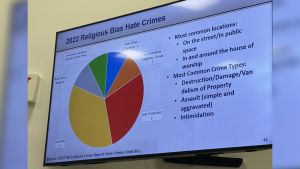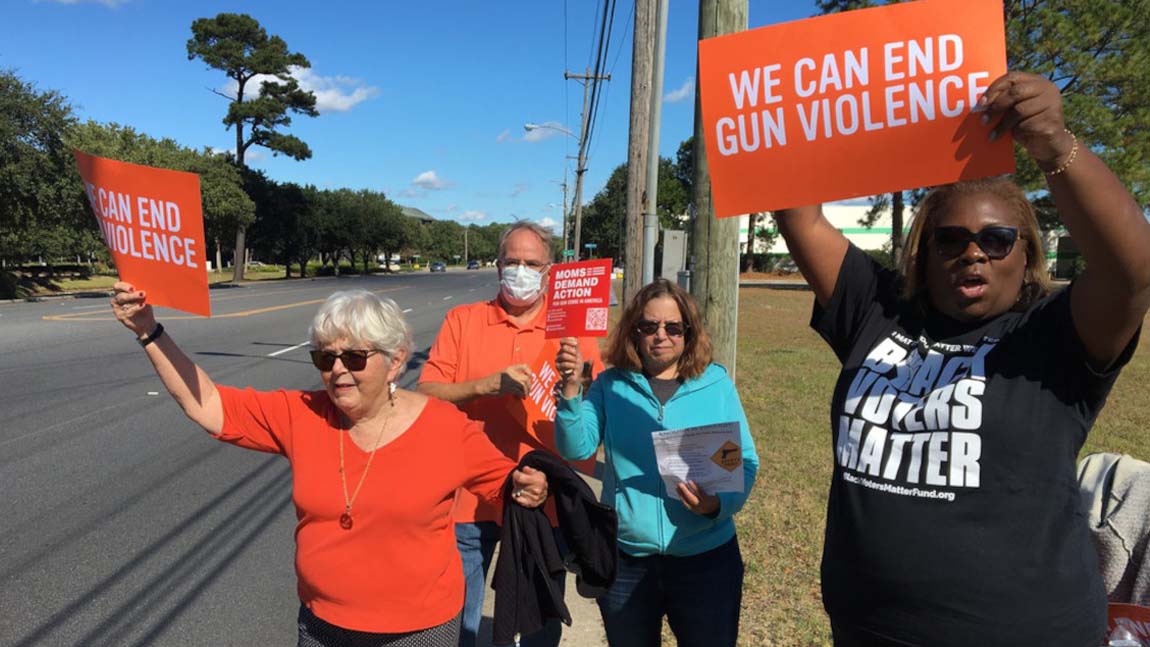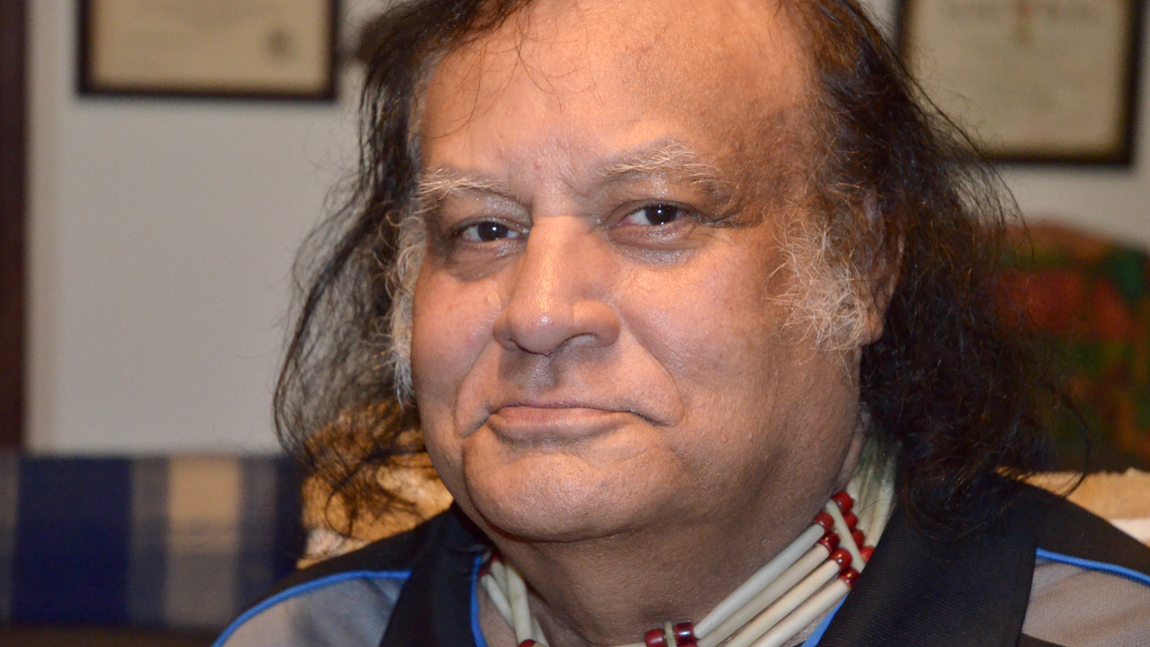South Carolina is one of only two states — the other being Wyoming — without a hate crimes law.
On Monday April 8th, 2024, members of the community assembled at an event hosted by the City of Myrtle Beach at the HGTC building for presentation and community discussion. The event’s main spokesperson, U.S. Attorney Adair Ford Burroughs, members of her staff with the Department of Justice (DOJ), and a few representatives from the Federal Bureau of Investigation (FBI) led the discussion about Hate Crimes and Incidents. This event was a great overview on the existing federal statutes in place to protect citizens, and how local law enforcement responds to – or fails to consider – these types of incidents.
During the event, the panel went into detail about what makes a crime a hate incident or an actual hate crime. It was also interesting to hear how rarely these events are actually reported and how little data is currently available in South Carolina. Overall, this event educated the public on what resources are available to them, the importance of reporting such incidents, and highlighted ways that we can improve the safety for everyone.
Ryan Thompson of Murrells Inlet also attended the event and believes discussions like this are important. He noted that the most poignant moment of the evening came when the couple (Shawn and Monica Williams) that were victims of the November 2023 cross burning in Conway were present and shared their harrowing story with us. Despite the horrible feeling and anxiety that they had faced due to the hateful action, they still decided to attend to speak about the response from local authorities and what they are doing to move forward.
“Being one of two states without a state law, I thought it was really important to come here, hear what resources were going to be here and just kind of see what’s going on in the community”, Thompson stated.
Events like this are crucial to moving the state forward to ensure that crimes of hate cease to happen in our state. South Carolina is one two states without a hate crime law on the books, and despite the fact that federal statutes exist, having a local law would allow police officers to charge perpetrators with the enhancement of hate crimes if and when they occur.
Per an article on AP News in February of 2022 covered how efforts to pass a hate crimes law in Wyoming, where the killing of gay college student Matthew Shepard led to the federal hate crimes law, have repeatedly failed – including in 2021.
The state of Arkansas passed a hate crime law in 2021, but some advocates see it as too weak to be considered under the category. Georgia passed its own law in 2020 — four months after the killing of Ahmaud Arbery, a Black man, after three white men chased him around a neighborhood before cornering him and shooting him with a shotgun.
In 2022, Democratic state Sen. Marlon Kimpson of Charleston, had pleaded with the 8 of the 29 Republicans who kept the bill from coming up for debate, asked them to “dig deep in your heart to let us have this debate” noting how the Senate had spent time debating a bill on whether to make it illegal for trucks to be altered.
“If we can spend 30 minutes debating electric dump trucks, we can spend some time debating arguably one of the most dangerous crimes that occur,” said Kimpson, whose district includes the Emanuel AME Church in Charleston.
Senate Majority Leader Shane Massey had said a SC hate crimes law wasn’t a priority for Republicans and that the federal hate crimes law was adequate in prosecuting the shooter at the Charleston church, who is currently on federal death row.
Other conservatives have said they are concerned that a hate crime bill could be used to prosecute Christians who speak out against gay marriage or other LGBTQ+ issues. To the contrary, a well-written hate crimes law could be used to cover acts of repeated direct verbal or written harassment and violent acts – not including normal speech covered under the First Amendment.
The Department of Justice (DOJ) enforces federal hate crimes laws that cover certain crimes committed on the basis of race, color, religion, national origin, sexual orientation, gender, gender identity, or disability.
In closing, the recent community discussion hosted by the City of Myrtle Beach and attended by federal officials underscored the critical need for increased awareness and action against hate crimes in our region. As we reflect on the poignant testimony of individuals who have been affected, it’s evident that the absence of a hate crimes law in South Carolina is a glaring gap in our justice system. We must heed their call to action and advocate for legislative change that ensures perpetrators are held accountable and victims receive the justice they deserve. By standing united against hate and fostering open dialogue, we can work towards a safer and more inclusive future for all residents of Myrtle Beach and Horry County.

